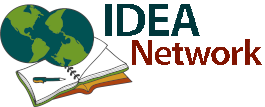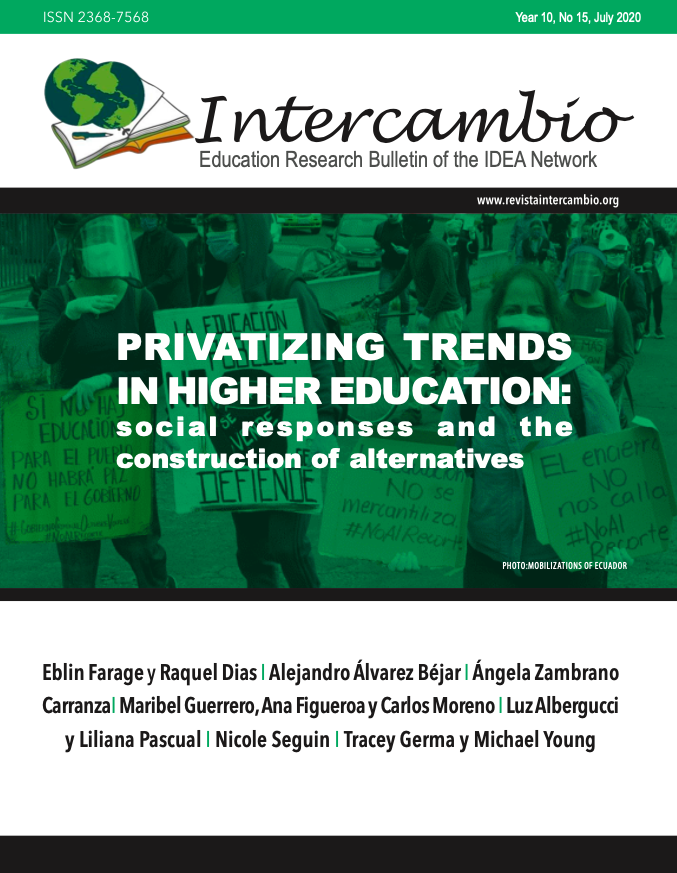Intercambio No. 15
PRIVATIZING TRENDS IN HIGHER EDUCATION:
social responses and the construction of alternatives
INTRODUCTION
We write the introduction to this issue of Intercambio in the midst of the global health emergency due to the COVID-19 pandemic.
We are living a historic moment due to the global character of the pandemic, the number of those infected and those who have died. This health catastrophe has exposed the harm caused by the neoliberal policies that have been applied for more than 30 years, leaving wide open the dismantling of the public, the privatization of health systems, the worsening of living conditions and the prevalence of chronic illnesses such as diabetes, obesity and hypertension.
The global economic crisis that was already in progress has deepened with the pandemic; it is a systemic crisis and its pattern of accumulation will obliterate small and medium businesses, and will leave millions of workers unemployed which will heighten inequality.
There are multiple impacts on education. According to UNESCO, 1.198 billion students are out of school in 150 countries, and millions of teachers have had their working conditions affected. The closing of schools affects the entire society because in many countries schools are the spaces that provide safety, food and affection to millions of children.
This health emergency has also been taken advantage of to promote the massive use of digital platforms to carry out online education. This means improvisation, simulation and, of course, big business for the owners of large transnational communications and education companies.
A danger that we as education workers and our unions face is that some are taking advantage of the current crisis to impose mixed educational models (in-person combined with online classes) as a standard where the transmis- sion of simplified knowledge is what dominates and the formative, critical and humanistic nature of education is abandoned. And where the social and collective essence of teaching and learning is threatened.
In the face of a horizon of uncertainty towards a “new normal” after the pandemic, where the large communica- tions and education corporations such as GSMA, Microsoft, Weidong, Amazon, Google, Facebook, Coursera and Zoom seek to take advantage of the power they have gained during this emergency, we the education unions, the teachers and the students that participate in the IDEA-Network know that the crisis that we are living through is also an opportunity to question the neoliberal model of removal of rights that has been imposed on us. We are preparing ourselves to act in this context and reverse the budgetary restrictions and the strict control of teachers that seek to transform them into mere facilitators in the transmission of educational content. To do this we have started a cycle of online (for the time being) seminars, “Disaster Capitalism: public education in the context of the pandemic,” to define an agenda of international struggle and actions to carry out.
Fortunately we can count on the commitment of the organizations that converge in this effort of international solidarity, and the experience developed over the past 20 years as the IDEA Network, to promote education for transformation with social justice and for emancipation of the peoples.
In this issue the reader will find articles that deal with some of the main problems that the secondary and post-se- condary education sectors on our continent face. Even before the pandemic, the privatizing hurricanes had battered education all over the Americas.
Year 10, No. 15, July 2020





